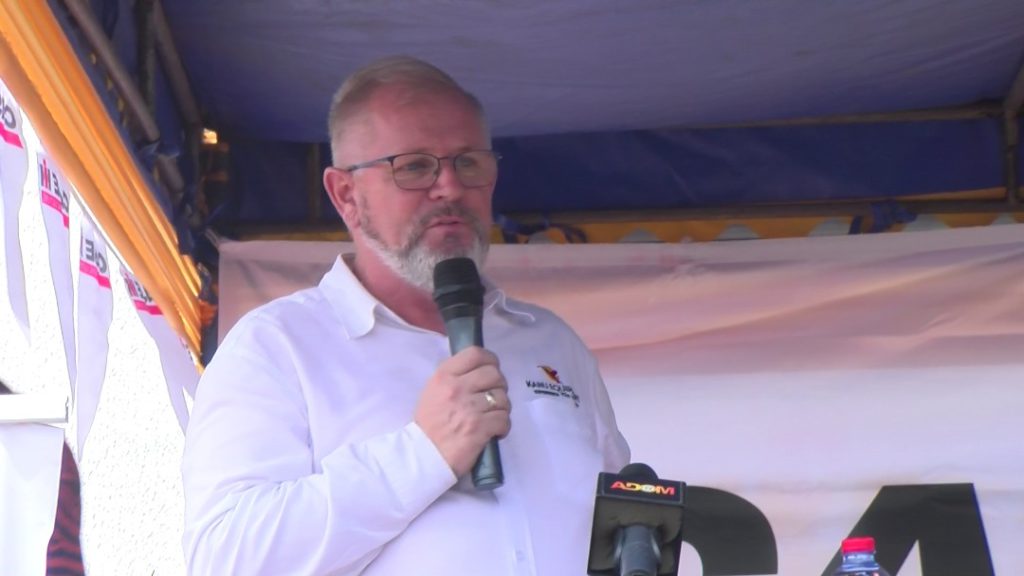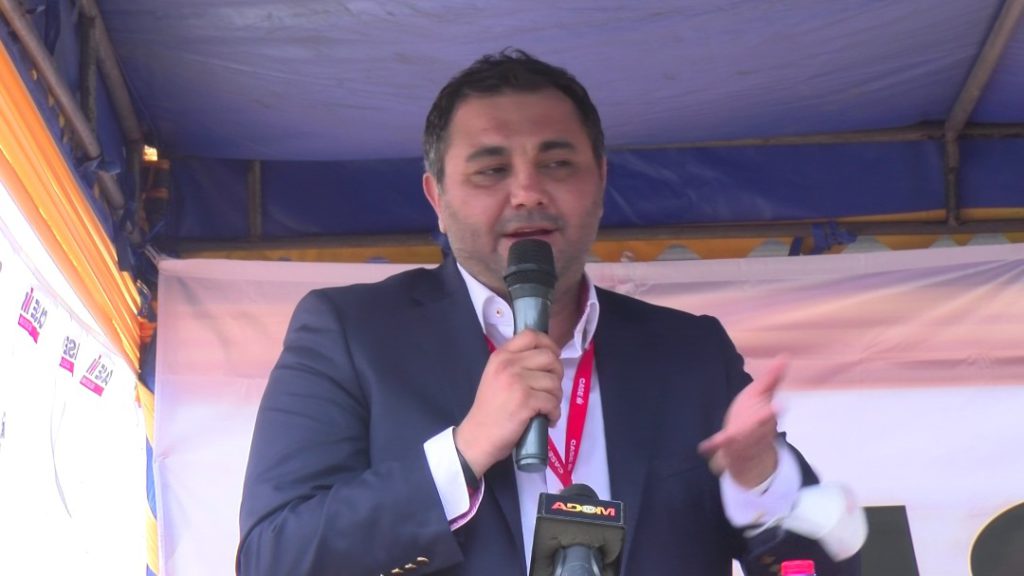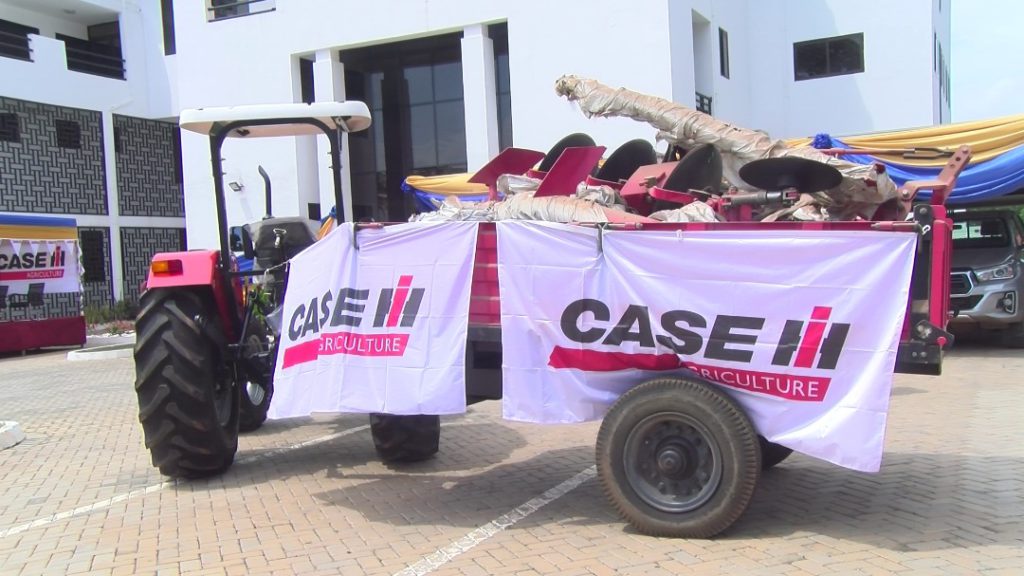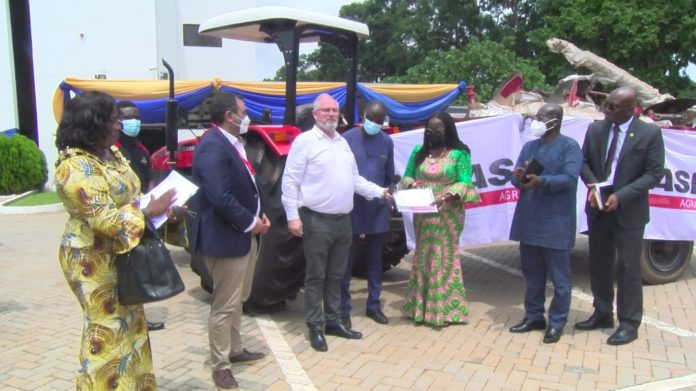Case International, an Agricultural equipment manufacturer, in collaboration with Kanu Equipment, has donated a tractor and a set of other agricultural implements to the West Africa Center for Crop Improvement (WACCI) of the University of Ghana.
Speaking at the donation ceremony, the Vice Chancellor or the University of Ghana, Prof. Nana Aba Appiah Amfo, said the collaboration between the university and the two entities is strong and expressed his gratitude to the donors for the gesture.
“What I like about today’s ceremony is the collaboration it demonstrates between units within and outside of the university,” she said.
According to her, the university has been influential in transforming agriculture and improving nutrition through variety staple crops for market availability.
“I am, therefore, positive that your donation will be very influential in the attainment of the centers goal and mandate,” she continued.
The Director of WACCI, Prof. Eric Yirenkyi Danquah, called on the government to invest in his outfit to help improve seed and crop production in order to boost the agric sector.
He touched on the “investment in the seed systems in the design and development of high-quality improved varieties with inbuilt resilience to biological and physical stress to drive the transformation of agriculture for socio-economic development.
“This has implications for reduced risks in farming. Also, supporting public-private partnerships and youth empowerment for the scaling up of early generation seed and agribusinesses – We shall strengthen our public private partnerships and establish new ones to scale up early generation seed development for the timely availability and accessibility of improved seed by farmers.”
Head of Business Development for West Africa Kanu Equipment, Brian Shinnick, said that agriculture is a key contributor to the economy of every country and must, therefore, be supported.
This, he said, is the reason why they decided to make the donation to the WACCI in order to make it strong enough to contribute to the improvement of the agric sector.
Business Manager for Case IH Agriculture for AFRICA & Middle East Emre also expressed his appreciation to WACCI for showing enthusiasm in promoting agriculture in Ghana and West Africa.
He continued: “I have been visiting Ghana a couple of times and I can tell you that this country is beautiful and the weather condition is also beautiful.”
According to him, his outfit is committed to food production in West Africa and will continue to provide support and training to make it a reality.
Again, Head of Business Development for West Africa Kanu Equipment, Brian Shinnick, said that agriculture is a key contributor to the economy of every country and must, therefore, be supported.
This, he said, is the reason why they decided to make the donation to the WACCI in order to make it strong enough to contribute to the improvement of the agric sector.
“We are happy as Kanu equipment in Ghana, that we have the opportunity to give something to support agriculture. Agriculture is so important at the present moment because with wars in Europe, there is food shortage in every part of the world,” he added.

Adding his voice, Ghana’s Ambassador to Austria and Permanent Representative to the United Nations Offices in Vienna, Philbert Kobina Johnson, also called for good soil management to ensure agricultural transformation.
He expressed optimism that those who have the scientific abilities to improve agriculture will collaborate with policy makers to improve agriculture.
He said that “seed breeding is one of the methods for agricultural transformation. However, it has to be combined with good soil management, nutrient, water and effective agronomic practices.”
He also expressed his readiness to facilitate a visit for the Director of WACCI with leading Agricultural Universities in Austria.

Meanwhile, Deputy Director of Policy, Planning and Monitoring at the Ministry of Food and Agriculture, Josephine Ivy Quagraine, who represented the Minister for Food Agriculture, commended the WACCI for demonstrating its capacity to transform the seed sub-sector through human capital.

According to her, the COVID-19 pandemic and the Ukraine/Russian war is a reminder that agriculture needs more investments to ensure bounty food production.
“The impact of the COVID-19 pandemic and the Ukraine-Russia crisis is a stark reminder of the urgent need to invest in agricultural value chains and food systems to ensure food self-sufficiency and resilience,” she said.

